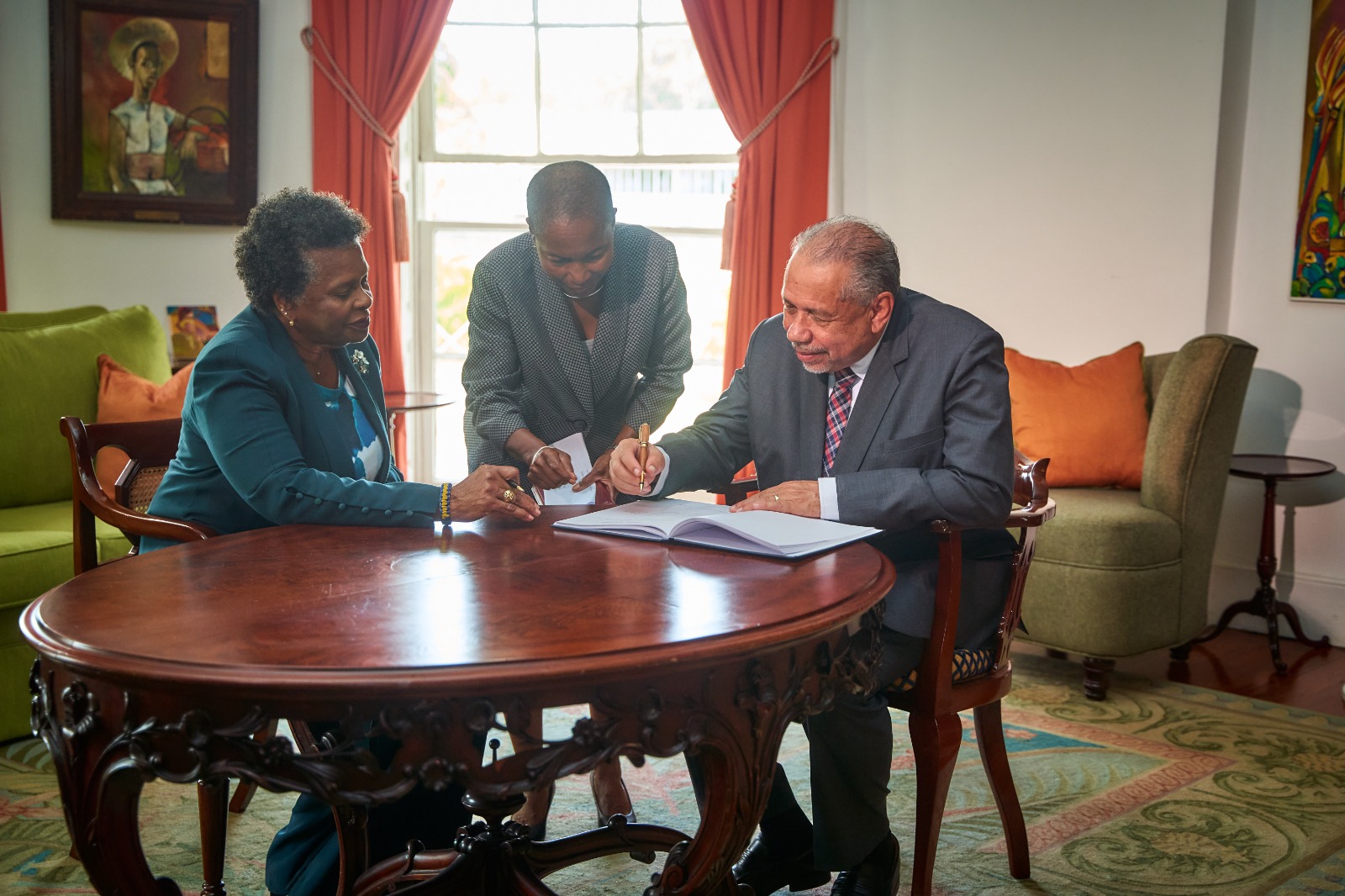Following the ongoing national debate about the response by EMERA to post-Elsa damage to its network gets the blogmaster’s dander up. In 2012 the BU family predicted the decision by the NIS Board chaired by Tony Marshall to dump our shares in Barbados Light and Power (BL&P) to Canada-based EMERA would comeback to haunt us. ALL sensible Barbadians agreed at the time that BL&P was a strategic asset and any smart government should have seen the merit to ring-fencing the ownership – see BU Archive. The government received pieces of silver to bolster the foreign reserves and as we did in 2003 with the sale of the Barbados National Bank to Republic Bank the decisions of key companies operating in Barbados are being made offshore.
Better late than never is the saying. Barbadians are correct to question EMERA’s disaster recovery plan (DR) in light of what transpired with the passing of Hurricane Elsa as a CAT 1. What if…?
- Is the Disaster Plan designed to optimally respond to unplanned incidents like natural disasters and other disruptive events?
- Is it a regulatory requirement for EMERA’s Disaster Recovery Plan to be submitted to the Fair Trading Commissions (FTC) or relevant government agency to ensure there is alignment with a national standard?
The BL&P enjoyed an excellent reputation with Barbadians in the period before the sale to EMERA for power uptime, customer service and pole maintenance to list just three. Information is abroad that many jobs were retrenched and others outsourced to sub contractors when EMERA bought our strategic asset. Did Hurricane Elsa as a CAT 1 hurricane expose EMERA’s Disaster for Barbados?

The blogmaster is aware Transmission and Distribution (TD) of electricity is a highly technical area and reached out to Chris Halsall who has acted in the role of intervenor in FTC Rate Hearings to assist with the post Hurricane Elsa review.
A natural monopoly is a type of monopoly that exists typically due to the high start-up costs or powerful economies of scale of conducting a business in a specific industry which can result in significant barriers to entry for potential competitors. A company with a natural monopoly might be the only provider of a product or service in an industry or geographic location. Natural monopolies can arise in industries that require unique raw materials, technology, or similar factors to operate.
Investopedia
To understand why the electric company is a strategic asset and should not have been sold to EMERA is to accept that it is a natural monopoly. And efficient electric company is a requirement for a productive Barbados. Are we confident the FTC and Ministry of Commerce will protect the rights of Barbadians proclaimed under the Consumer Protection Act? Is it a case that at the end of the day EMERA will simply continue to invest in new deployment and expend on maintenance as they see fit by passing the costs to the consumer along with their allowed 10.4% ROR on the “Rate Base”?
This critique is not directed at the linemen seen scaling poles at ungodly hours during the last week to return households to full service. We have a tendency in the hysteria of the moment to conflate issues.
We turn our attention to EMERA’s pole plant:
1. Poles
1.1. There are many instances where poles are not vertical. This is a good indicator the pole requires maintenance.
1.1.1. It doesn’t take much effort to find poles mounted side-by-side, one or both leaning, tied together.
1.2. Related to this are cases of vines growing on the poles and/or trees growing near them.
1.3. Pole maintenance cost money. This will, of course, have to be passed onto the Consumer.
1.4. This is the “Layer 0” in the OSI model for wired connections – https://en.wikipedia.org/wiki/OSI_model.
2. Cables
2.1. As was documented at some length during the Rate Hearings way-back-when, “Pole attachments” are a big deal. They are why the poles exist at all.
2.2. The topmost attachment areas are for cables that deliver electrical power by way of Transmission (one or three phases of *very* high voltage).
2.3. Next down is for Distribution (one to three phases of ~110V; two plus neutral is the most common).
2.3. Then at the very bottom areas are for the various telephony providers to attach copper pairs (legacy), Coax cable (legacy), and/or Fiber (GPON, etc).
2.4. The cables also require maintenance. IMO, the telephony providers have not been maintaining their cables as well as they might.
2.5. Cables are the “Layer 1” in the OSI model, and are the only options for power.
Somewhat interestingly, the cables which were involved with this were down an abandoned cart road. Absolutely no reason why the power infrastructure was installed where it was. I suspect this is just one example of many where the T&D could be made more resilient – Source: Chris Halsall
3. Situational awareness
3.1. Although BL&P has invested in “Smart Meters”, it would be interesting to know if this fed into their SCADA systems.
3.2. It might be worth looking at having “Crowd-Sourced” knowledge of poles and/or cables which should be reviewed.
3.3. The BL&P App needs which facilitates reports of faulty poles, light etc needs to be aggressively promoted and details of the reports and follow up shared with the public. To many anecdotal stories of reports of leaning poles with no apparent response from the power company.
4. Alternatives
4.1. Underground cables are less susceptible to winds, but are to flooding and are much more expensive to deploy.
4.2. “Smart Grid” technology could make the grid more resilient. But that’s a very long-term discussion.
Although this blog focuses on the quality of response post Elsa by EMERA, it is worth mentioning the number of poorly constructed homes damaged or destroyed and the inability of successive governments to legislate and enforce a building code.






The blogmaster invites you to join the discussion.